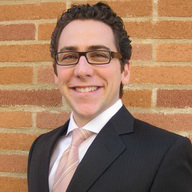It’s summertime, and while that means sun and beaches (or internships) for students, it is also a good time for business schools to make changes to their MBA programs and update their curriculums. With huge changes afloat in the global economy, top schools are using this summer as a chance to implement major updates that they hope will better adapt students for the shifts in business and ultimately land jobs.
Tag Archives: UCLA
Video Impressions of UCLA Anderson
About time for a new post! So, while we work on typing up some more MBA interviews, here is some more raw video footage of one of our visits to UCLA Anderson School of Management a while ago. Just some impressions of the campus on a (pretty typical) sunny day in Los Angeles. Nice huh?
Video: Impressions of UCLA from FIND MBA on Vimeo.
Video: MBA Programs in Southern California
Another video! This one about some MBA programs in Los Angeles and San Diego. Enjoy!
MBA Programs in Southern California from FIND MBA on Vimeo.
More information about the schools mentioned in this video:
UCLA Anderson
USC Marshall
Pepperdine
University of San Diego (USD)
UC San Diego (UCSD) Rady
San Diego State (SDSU)
Student Interview: Michael Ross at UCLA Anderson
After ten years working on the East Coast, Michael Ross came out West to push his comfort zone as an MBA student at UCLA Anderson. With his first year almost behind him, we asked him how it’s going.
How did you end up at UCLA? And why Los Angeles?
It’s like the admissions interview all over again. I had about nine years of professional experience before I started. I graduated from UPenn with an undergraduate focus in computer science, and I took a couple of classes at Wharton, as well. I was interested in marrying business to technical applications.
I joined an incubation services and information technology firm backed by Kleiner Perkins called Silicon Valley Internet Partners. I was there for four years. It was 1998, and nascent Internet times. And you had a lot of start-ups with venture backing and large companies that wanted to be entrepreneurial and wanted to understand how to use the Internet.
So I was there for four years. I loved it. I was in a product management role, and I worked across disciplines, with strategists, graphic designers, interface designers, technologists. It was an incredible experience, and left me desiring to have that experience I progressed professionally. Unfortunately, those were anomalous times. I progressed, those experiences became fewer and farther between.
Interview: Dominique Hanssens of UCLA Anderson
Location, location, location – it also matters for MBA students looking to focus on marketing. We spoke with Dominique Hanssens, who chairs the marketing faculty at the UCLA Anderson School of Management, about what makes a good program, and why the West Coast might have its finger on the pulse of future trends.
What makes a good marketing program? Not all top-ranked business schools necessarily have strong marketing programs, right?
There’s not a one-to-one overlap, that is true. There are many places that have good marketing teaching, but not that many that have a state-of-the-art research program. But the following generalization is true: all of the top programs are world-class in their research, but not all of the world-class research programs are among the top programs at the MBA level. The reason is that there is a certain amount of inertia in reputation development.
Let me give you an example: One of the reasons why the Kellogg School at Northwestern does so well is Professor Philip Kotler. He has written some very important marketing books at a critical time in marketing’s history as a discipline, and is widely recognized for that. A lot of the MBA students from 20 or more years ago have read these books, and many of them are now in senior managerial positions. That established a reputation, a long-term effect that Kellogg is able to capitalize on.
There are some other equally strong marketing research faculties – including Columbia, Stanford and UCLA for example – that don’t have such pioneering book authors. As a result, they haven’t communicated their value proposition as effectively with the MBA audience. That’s the fundamental difference, as I see it.

